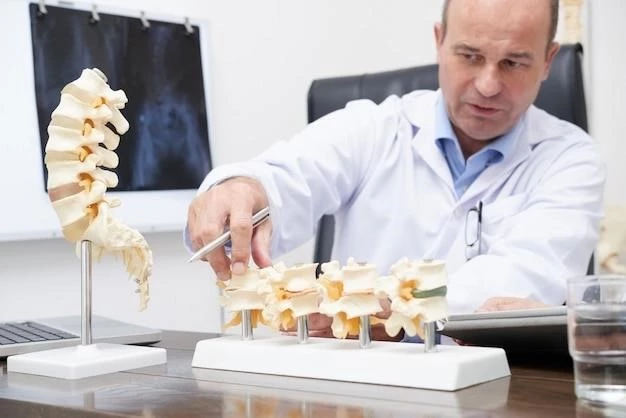Introduction to Osteodysplastic Dwarfism Corsello Type
Osteodysplastic Dwarfism Corsello Type refers to a rare bone disorder characterized by severe growth retardation and microcephaly․ Seek professional advice for management strategies․
Description and Overview
Osteodysplastic Dwarfism Corsello Type, also known as microcephalic osteodysplastic primordial dwarfism type II (MOPDII), is a rare form of primordial dwarfism characterized by severe growth retardation, microcephaly, and skeletal abnormalities․ This genetic condition typically presents with distinct physical features and can lead to various medical complications․ Diagnosis often involves genetic testing and radiographic imaging to confirm the condition․ Treatment and management strategies aim to address the complex needs of individuals with this condition, including growth hormone therapy․ Understanding the prognosis and potential challenges associated with Osteodysplastic Dwarfism Corsello Type is essential for individuals and families affected by this rare genetic disorder․
Causes and Risk Factors
Understanding the genetic mutations and family history associated with Osteodysplastic Dwarfism Corsello Type is crucial․ Consult a healthcare provider for personalized risk assessment and further information․
Genetic Mutations
Osteodysplastic Dwarfism Corsello Type is primarily caused by mutations in the PCNT gene․ These mutations disrupt normal cellular functioning and lead to the characteristic features of the condition․ Understanding the genetic basis of this rare disorder is essential for diagnosis and treatment planning․ Consult with a genetic counselor or healthcare provider for detailed information on the specific genetic mutations associated with Osteodysplastic Dwarfism Corsello Type․
Family History
While Osteodysplastic Dwarfism Corsello Type is primarily caused by genetic mutations, understanding the family history can provide valuable insights into the inheritance pattern and recurrence risks․ Consult with a genetic counselor or healthcare provider to assess the significance of family history in the context of this rare genetic disorder․
Clinical Characteristics
Microcephalic osteodysplastic primordial dwarfism type II (MOPDII) is characterized by severe growth retardation, microcephaly, and skeletal abnormalities․ Learn more about its distinct features․
Physical Features
In individuals with Osteodysplastic Dwarfism Corsello Type, distinct physical features include severe growth retardation, microcephaly (small head size), and skeletal abnormalities․ These characteristics contribute to the unique presentation of this rare genetic disorder․ It is essential to recognize these physical traits for early identification and appropriate management․ Consult with healthcare professionals for a thorough evaluation if you suspect these physical features in yourself or a loved one․
Medical Complications
Osteodysplastic Dwarfism Corsello Type is associated with various medical complications, including respiratory issues, dental problems, and joint abnormalities․ Individuals with this condition may also experience neurological issues and developmental delays․ It is crucial to address these medical complexities through a multidisciplinary approach involving specialists in genetics, endocrinology, orthopedics, and other relevant fields․ Regular monitoring and early intervention can help manage these complications effectively and improve the quality of life for individuals affected by this rare genetic disorder․
Diagnosis and Testing
Diagnostic procedures for Osteodysplastic Dwarfism Corsello Type typically involve genetic testing to identify mutations in the PCNT gene and radiographic imaging to assess skeletal abnormalities․ Seeking specialized medical evaluation is crucial for accurate diagnosis and tailored treatment planning․
Genetic Testing
Genetic testing plays a critical role in diagnosing Osteodysplastic Dwarfism Corsello Type by identifying mutations in the PCNT gene․ This testing helps confirm the genetic basis of the condition and guides personalized treatment strategies․ Consult with a genetic counselor to understand the implications of the test results and how they influence the management of this rare genetic disorder․
Radiographic Imaging
Radiographic imaging, such as X-rays and bone scans, plays a crucial role in diagnosing Osteodysplastic Dwarfism Corsello Type by revealing skeletal abnormalities characteristic of the condition․ These imaging studies help healthcare providers assess the bone structure and growth patterns, aiding in the accurate diagnosis and management of this rare genetic disorder․ Consult with your healthcare team for further guidance on the role of radiographic imaging in evaluating Osteodysplastic Dwarfism Corsello Type․

Treatment and Management
Effective management of Osteodysplastic Dwarfism Corsello Type often involves a multidisciplinary approach to address the diverse needs of individuals․ Growth hormone therapy is a common intervention used to support growth and development in affected individuals․ Collaborate with a healthcare team specialized in rare genetic disorders to create a comprehensive treatment plan tailored to your unique requirements․
Multidisciplinary Approach
Managing Osteodysplastic Dwarfism Corsello Type requires a comprehensive multidisciplinary approach involving specialists from various fields such as genetics, endocrinology, orthopedics, and more․ Collaboration among experts ensures a holistic treatment plan tailored to address the complex medical needs associated with this rare genetic disorder․ Seek guidance from a diverse medical team to optimize care and support for individuals with Osteodysplastic Dwarfism Corsello Type․
Growth Hormone Therapy
Growth hormone therapy is a common intervention used in the management of Osteodysplastic Dwarfism Corsello Type to support growth and development․ This therapy aims to address growth retardation and improve outcomes for individuals affected by this rare genetic disorder․ Working closely with healthcare providers specialized in endocrinology can help determine the appropriateness and effectiveness of growth hormone therapy in the context of Osteodysplastic Dwarfism Corsello Type․

Prognosis and Outlook
Understanding the life expectancy and quality of life considerations for individuals with Osteodysplastic Dwarfism Corsello Type is vital․ Stay informed about current studies and future directions in research to enhance the prognosis and outlook for individuals affected by this rare genetic disorder․
Life Expectancy
Osteodysplastic Dwarfism Corsello Type is characterized by a range of complexities that can impact life expectancy․ The prognosis for individuals with this rare genetic disorder varies depending on the specific manifestations and overall health status․ Regular medical management and adherence to treatment recommendations can positively influence the quality and longevity of life․ Engaging with healthcare providers specializing in rare genetic disorders can help in understanding the individual prognosis and developing a personalized care plan tailored to enhance the quality of life for those affected by Osteodysplastic Dwarfism Corsello Type․
Quality of Life Considerations
When dealing with Osteodysplastic Dwarfism Corsello Type, understanding the impact on quality of life is crucial․ Consider factors such as physical well-being, emotional health, and social interactions to enhance overall quality of life․ Seek support from healthcare professionals experienced in rare genetic disorders to address specific quality of life considerations and improve well-being for individuals and their families facing Osteodysplastic Dwarfism Corsello Type․
Research and Developments
Stay informed about current studies and future directions in the field of Osteodysplastic Dwarfism Corsello Type to explore advancements in diagnosis, treatment, and overall management․ Embracing research developments can offer insights into improving outcomes for individuals with this rare genetic disorder․
Current Studies
Recent research studies focus on investigating the genetic mechanisms underlying Osteodysplastic Dwarfism Corsello Type to enhance diagnostic capabilities and develop targeted treatment approaches․ Researchers are exploring potential therapeutic interventions and evaluating the long-term outcomes of individuals with this rare genetic disorder․ Stay updated on current advancements in understanding Osteodysplastic Dwarfism Corsello Type to actively engage in informed discussions with healthcare professionals and contribute to ongoing research efforts․
Future Directions
Future directions in the field of Osteodysplastic Dwarfism Corsello Type research aim to explore novel treatment modalities, enhance genetic understanding, and improve the overall management of this rare genetic disorder․ Emerging studies may focus on personalized therapies, advancements in diagnostic tools, and innovative approaches to address the complex medical needs of individuals with Osteodysplastic Dwarfism Corsello Type․ Keeping abreast of future developments can pave the way for better outcomes and quality of life for those affected by this condition․
